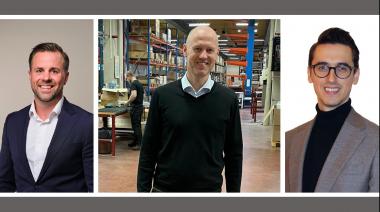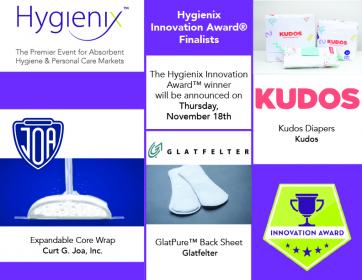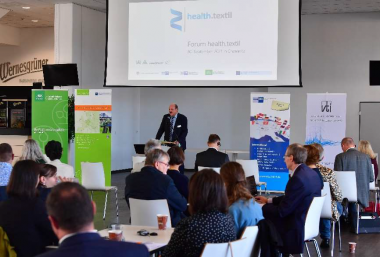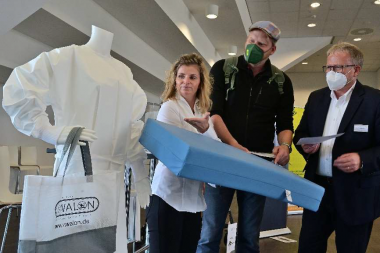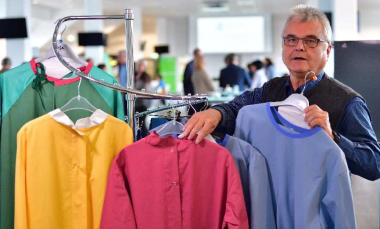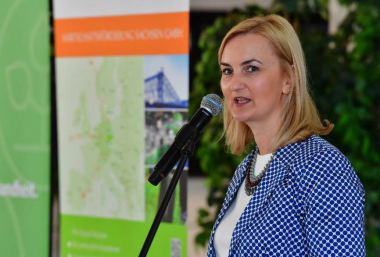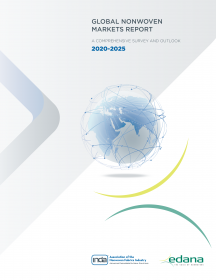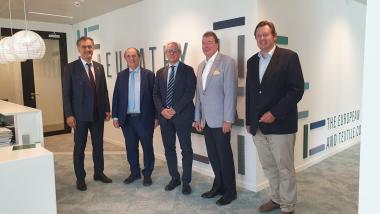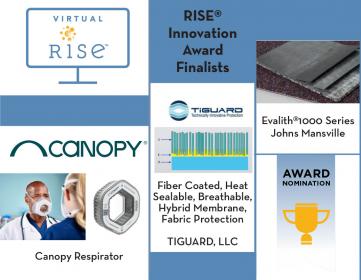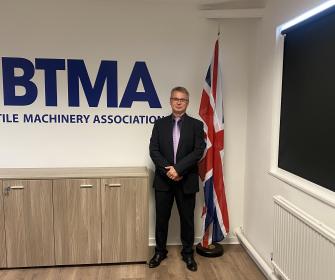Swiss Textile Machinery: Changes and opportunities through automation
For most textiles, finishing processes are not actually the last stage. Products often need an extra touch of expertise to make them perfectly ready for the customer. At this point in the value chain, that usually means manual tasks – but now there are technical solutions and intelligent systems which can handle complex operations better, while adding extra value and assured quality.
Automation brings reliability and efficiency, ultimately saving costs to produce the right quality every time. Swiss companies are specialized in many of these disciplines, with machinery for fabric inspection and presentation, labelling and tracking, folding and packaging. They have the technology to inspire a new vision at the post-production segment of the textile manufacturing processes. Optimization of workflows, with bottleneck management, is an obvious potential benefit. And it delivers measurable returns on investment. The wider picture with automation will prepare companies for the IoT and Industry 4.0.
New business models
The advantages of automation in mills with high-volume production are obvious: consistent quality, increased efficiency, waste reduction in some cases, as well as significant medium-term cost reductions in every case.
That description focuses on the aims of modern mills in low-cost markets. But producers in Europe and USA could reach out for more. For them, automation could be a game-changer, offering unique new opportunities.
Reshoring is a growing trend now. It shows great potential and is definitely driven by sustainability and changes in consumer mindsets. “We believe that the time is right – the machines and solutions certainly are – to push automation also to the very end of the production line, replacing intensive manual work and take the chance for reshoring. The current situation is kind of a transition time which is expected to last for a couple more years in the textile industry,” says Rueedi. He adds that any investments in these prime markets pay off much faster because of higher labour costs.
Innovation transformed through automation can do much more than simply replacing the nimble fingers of humans. It also enables new business models, guaranteeing prosperous future business, alongside greater job security.
Digital workflow and process control
The Swiss company Maag Brothers is a leading supplier of high-end machines for quality assurance in the final make-up processes, specifically fabric inspection, plating/folding, selvedge printing and packaging. Maag reports on a practical example from a mill in India which recognized the potential of automation.
An analysis at the customer’s mill identified the main goals as modernization of the workflow at quality control and packing processes. Maag’s new system covers tasks from fabric inspection to dispatch, and offers transparent and easily adjustable processes with real-time process control. It’s a digital solution, resulting in a slim organization, paperless, and the basis for further optimization towards Industry 4.0 to exploit its full potential. The customer’s own calculation showed a ROI for the installation at less than three years – along with a reduction in manpower and savings in fabric costs for shade samples.
Perfectly labelled, efficient data...
Smooth processes start with a label. Swiss company Norsel is an expert in grey fabric labelling systems, for piece tracking through all textile processes. High-quality label printing and proper sealing on all kind of fabrics ensure readability and sustainability after dyehouse processes such as mercerizing, high temperature dyeing and even hot calendering. No roll mix-up during dyeing, easy sorting of fabric rolls and rapid delivery make processes in the mill much more efficient. Using RFID codes lifts fabric inventory control to the highest level, with all information readily transferred to a database and integrated through any ERP software.
It’s a foolproof way to avoid the risk of human errors from hand-written notes on grey fabrics and article sheets, by opting for reliable, secure and forward-looking solutions.
Sample collections – the silent salesmen
First impressions count, so fabric producers like to present their collection perfectly – and that’s only possible with automated solutions. Swiss producer Polytex continuously refines its solutions, underlining its leading position in sample making equipment. Fully-automatic high-performance sample production lines are designed to satisfy the highest expectations. Fully-automatic lines or robotic machines set the standards for quality and performance. Even the most demanding clients can achieve their goals with impeccable samples, quickly and efficiently made, for flawless collections that are sure to impress.
Automation drives buying
First impressions are also the trigger for quick purchase decisions. The proof is there on every store shelf. Customers of Espritech are also well aware of it. They trust this Swiss producer of automated folding machinery to provide the final touch of class to home textiles and apparel products before they go on display. The folding systems are generally large mechatronic devices, loaded with latest technologies in mechanics, electronics, sensors and pneumatics. “Textile producers are amazed how folding machines solve the tricky task of reliably handling chaotically behaving materials. They see process optimization potential and the impact. We observe a slow but continuous change of mindset installing sophisticated technology even in the last steps of textile finishing,” says Philipp Rueedi, CFO at Espritech.













